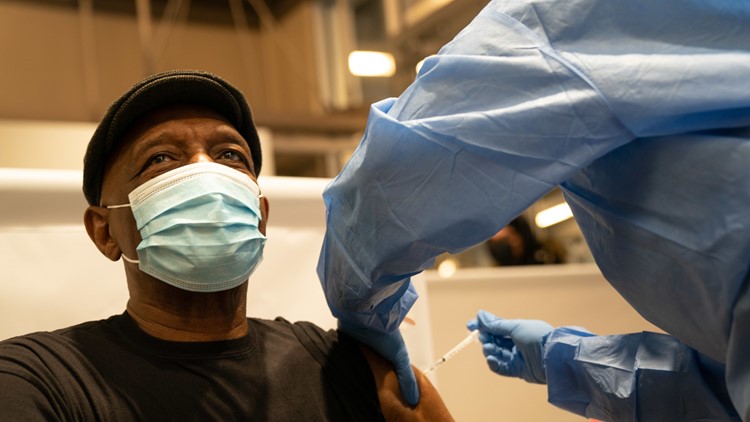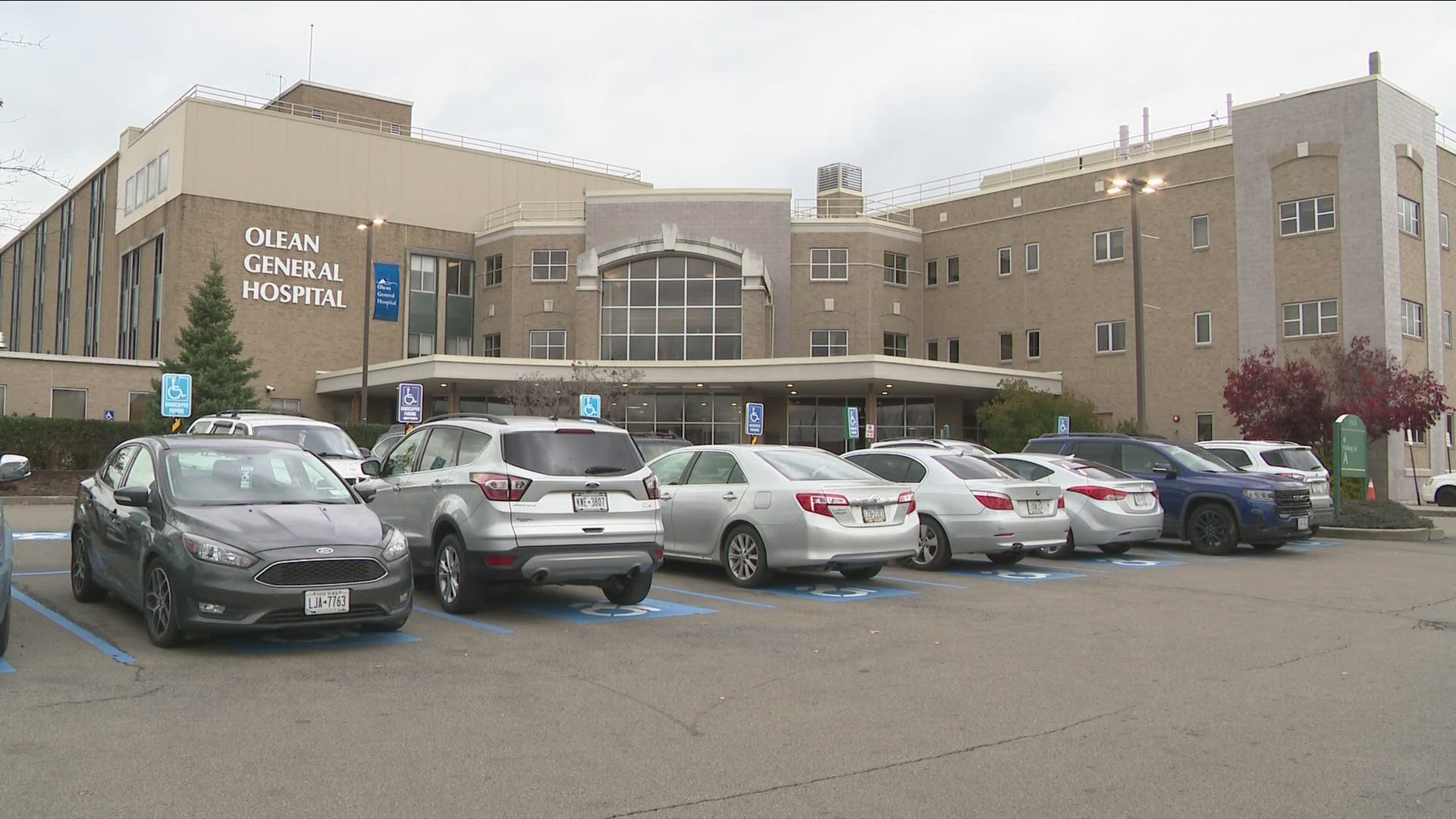ALBANY, N.Y. — New York State Governor Andrew Cuomo shared data on Friday that shows eligible African-American New Yorkers are consistently getting the COVID-19 vaccine at lower rates than other groups.
Cuomo says that the two concerns the state has are access and distrust in the vaccine and cited a poll by the Association for a Better New York (ABNY) that showed that 39% of New Yorkers are hesitant to take the vaccine.
Additionally, in the eligible 65-years-old or older population and essential worker populations, Hispanic or Latinx individuals are receiving the vaccine at a lower rate.
Seventeen percent of 1A eligible hospital workers are African-American, but are only 10 percent of hospital workers who have received the vaccine.
In the essential worker population, African-American essential workers make up 17 percent of the eligible population, but only 5 percent of the vaccine recipients. Similarly, Hispanic or Latinx individuals make up 14 percent of the eligible essential worker population, however, only make up 10 percent of vaccine recipients in this population.
Lastly, in the eligible 65-years-old or older population, 13 percent of that group is African-American but only make up 4 percent of vaccine recipients. Hispanic or Latinx individuals make up 12 percent of this eligible population, but account for only 5 percent of vaccine recipients in this group.
Cuomo says that the two concerns the state has are access and distrust in the vaccine and cited a poll by the Association for a Better New York (ABNY) that showed that 39% of New Yorkers are hesitant to take the vaccine.
White New Yorkers polled were more likely to say they are willing to take the vaccine once they can access it, than people of color. Seventy-eight percent of white New Yorkers said they would take it, versus only 39 percent of Black New Yorkers, 54 percent of Hispanic New Yorkers, and 54 percent of Asian New Yorkers.
Cuomo says the concerns of people of color are understandable given how people of color have been treated historically in the medical system. Some driving concerns leading to vaccine hesitancy from the ABNY poll include the effectiveness and side effects of the vaccine, and distrust of the healthcare system, according to the governor.
"Yes, there's reason for cynicism, go back to the Tuskegee experiment, yes, the bona fide reasons for distrust of the system," Cuomo said.
The Tuskegee experiment, which was run by the U.S. Public Health Service and lasted from 1932 until 1972, enrolled 600 African-American men from Alabama for medical treatment. Nearly 400 of the men had syphilis, but were only told they were being treated for "bad blood."
Even after a treatment for the disease became available 15 years into the study, the U.S. Public Health Service continued to only monitor the men and give them placebos. This led to many of the men dying or continuing to suffer from the effects of the disease.
Cuomo says he expected the distrust but wants to emphasize to New Yorkers this vaccine can be trusted and is safe. The state is working with people at the community level to increase trust, share facts and increase access.
"The hesitancy must be directly addressed with facts and validation. And I'm speaking to leaders in the Black community, pastors, community groups. We have to get the information out," Cuomo said, regarding the vaccine's safety.
Beyond hesitancy, the other great issue Cuomo says the state faces with getting the vaccine out to people of color in New York is making the vaccine accessible. He said one way the state is addressing this is by opening up the vaccination clinic at Yankee Stadium, the same day as this press conference, to Bronx residents.



